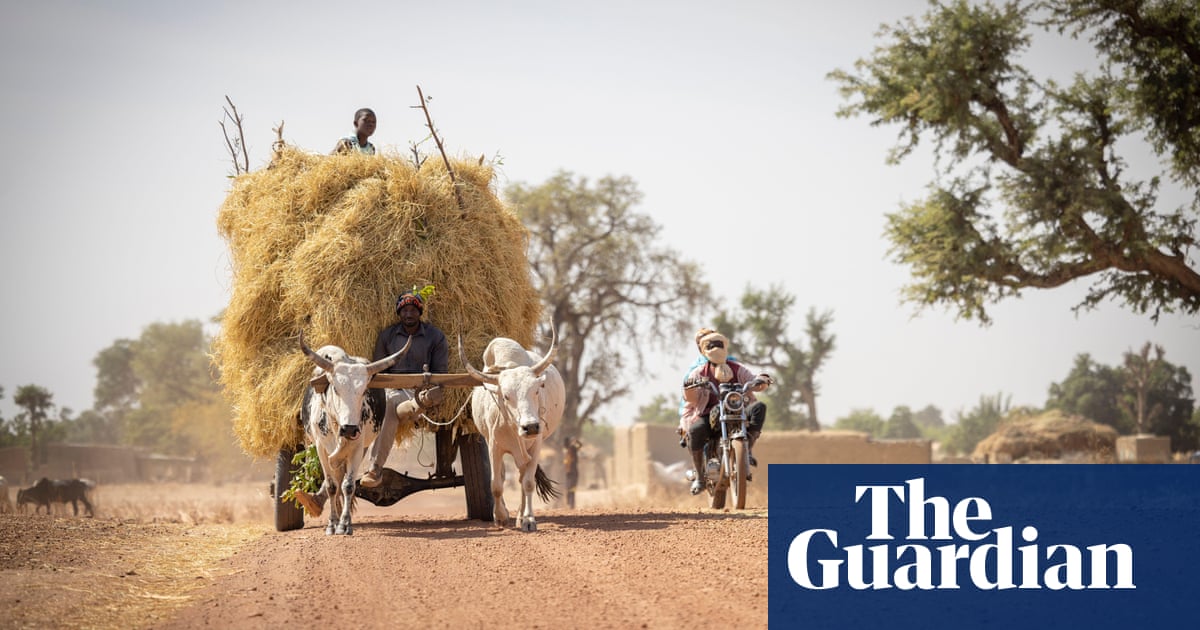
The deadly protracted heatwave that filled hospitals and mortuaries in the Sahel region of Africa earlier this month would have been impossible without human-caused climate disruption, a new analysis has revealed.
Mali registered the hottest day in its history on 3 April as temperatures hit 48.5C in the south-western city of Kayes. Intense heat continued across a wide area of the country for more than five days and nights, giving vulnerable people no time for recovery.
In the capital, Bamako, the Gabriel-Touré hospital reported 102 deaths over the first four days of April, almost as many as there had been over the entire month last year. More than half the dead were over the age of 60 and many of the deaths were related to heat, the hospital said.
Local news reports said mortuaries in Bamako were so full that many people had had to keep their dead relatives at home.
The health impacts may have been compounded by electricity shortages, which left many people without fans and air conditioning units. Regional media have reported that the national energy company, EDM, is struggling to pay a £410m fuel bill for its power plants.
Local populations may also have been made more susceptible because the heatwave coincided with the end of Ramadan, when many Muslims fast during the day and consume food and water only in the early morning or at night.
The full death toll is hard to calculate due to a lack of data from the countries affected, but the study, by a team of international scientists, said there had probably been hundreds or possibly thousands of other heat-related deaths.
The analysis, by World Weather Attribution, found that maximum temperatures in Burkina Faso and Mali had been made 1.5C hotter by climate breakdown, which is caused by the burning of gas, oil, coal and trees – particularly in the wealthy northern hemisphere. The same factors had pushed up nighttime temperatures by 2C, researchers said.
In the broader region, the study found the five-day heatwave would have been 1.5C cooler without human influence on the climate.
Kiswendsida Guigma, a climate scientist at the Red Cross Red Crescent Climate Centre in Burkina Faso, said people in the Sahel and other parts of west Africa were accustomed to year-round heat, but that April’s temperatures had been unprecedented: “For some, a heatwave being 1.4 or 1.5C hotter because of climate change might not sound like a big increase, but this additional heat would have been the difference between life and death for many people.”
Mali and Burkina Faso would normally expect such protracted high daytime temperatures around once in every 200 years. The study forecasts they will become 10 times more frequent if global warming reaches 2C above preindustrial levels, as is expected to occur in the 2040s or 2050s if emissions are not rapidly halted.
The El Niño phenomenon has been driving up temperatures worldwide over the past year, but researchers found that El Niño’s effect was negligible in Mali and Burkina Faso compared with human-caused global heating.
after newsletter promotion
Other studies have underlined how the countries least responsible for the climate crisis are suffering many of the worst effects of it. In March, the southern coastal zone of western Africa experienced average heat index temperatures, which include humidity, of 50C, which is considered dangerous. In some areas, this rose as high as 60C, classified as “extreme danger”.
An analysis of this event by World Weather Attribution found that human-induced global heating had pushed up temperatures in the region on this occasion by 4C and made the combination of humidity and heat 10 times more likely.
The authors urged world leaders to curb emissions of gas, oil and coal as rapidly as possible to reduce future effects. They said local authorities should also prepare heat action plans so that hospitals, schools and vulnerable populations were prepared for heatwaves. They said fossil fuel companies should also be made more accountable.
“Extreme heat, driven by climate change, is resulting in death for vulnerable people. Attribution studies like this one clearly show that if the world continues to burn fossil fuels, the climate will continue to warm and vulnerable people will continue to die,” said Friederike Otto, senior lecturer in climate science at the Grantham Institute at Imperial College London.
“In the future, it’s likely this increasingly evident link between fossil fuel emissions and heat-related death will be used in litigation against fossil fuel companies.”
In a separate study released at the same time, World Weather Attribution found that El Niño, rather than human-induced climate breakdown, was the primary cause of the devastating drought in southern Africa earlier this year and advised governments in the region to bolster food security ahead of future El Niño years.
Read More: World News | Entertainment News | Celeb News
Guardian









